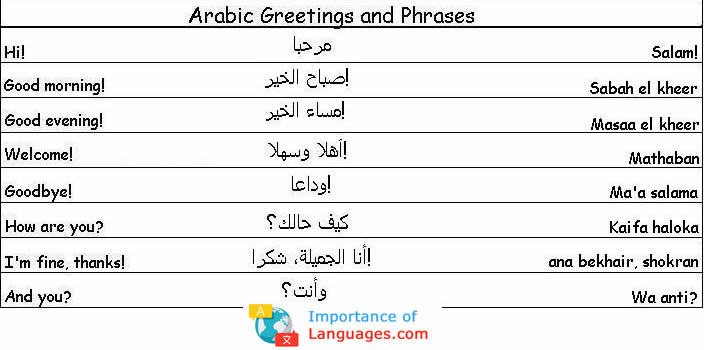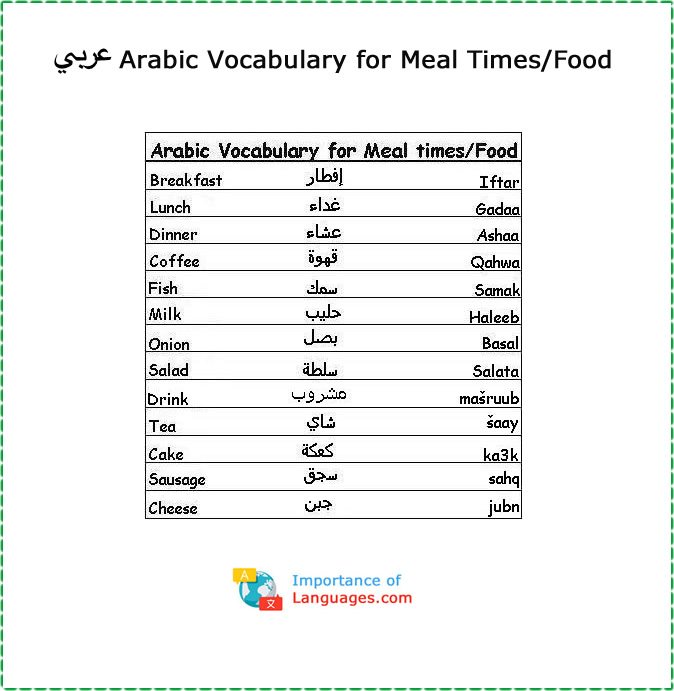You probably already have your own reasons to learn Arabic but in case you don’t have one already or still looking for more reasons to get motivated to learn Arabic. This article should help you answer the question “why learn Arabic?”
Reasons to Learn Arabic 1: Arabic is the fifth most spoken language in the world
The Arabic language is spoken by over three-hundred million speakers. Most Arabic speakers are found in the Middle East and is presence as the official language of more than twenty countries with a minorities of Arabic speakers all over the world. Arabic is also an official language of many world organisations. Arabic has a rich history and dated back as one of the oldest languages.
Reasons to Learn Arabic 2: High Demand but Low Supply of Arabic-Speakers in the Western World
Despite being one of the most spoken languages globally, there are very few Arabic translators available in the western world. With the increasing importance of the Arabic world in our daily news. There is a very high demand currently for more and more Arabic translators and interpreters are needed by government departments and agencies as well as corporations seeking to enter the global arena.
Reasons to Learn Arabic 3: Arabic is the Language of the Qur’an, the Holy Book of Islam
Arabic is the language of the Islamic Faith. The Qur’an is written in Arabic and as part of their faith is required to pray towards mecca in Arabic five times a day.
Reasons to Learn Arabic 4: There are Scholarship Opportunities for Arabic Studies
Because of the higher demand for people speaking Arabic, many of the world’s governments and agencies have been offering scholarships and other opportunities for individuals who are interested in Arabic studies and learning Arabic.
Reasons to Learn Arabic 5: A Growing Arabic Minority in the United States and All Over the World
Like the rest of the world, the United States as a growing minority of Arabic speakers. The estimated percent of Arabic according to recent census data is around four to five million. Even just a basic knowledge of the Arabic language and culture can improve understanding and acceptance of this often misunderstood and misrepresented group of Americans.
Reasons to Learn Arabic 6: You Plan to Visit an Arabic Speaking Country
This one I’m sure you have the gist of already. If you plan to travel a lot to Middle Eastern countries then learning the Arabic language will come in handy when trying to find your way around and talking to the local people.
Reasons to Learn Arabic 7: Business Opportunities in Arabic Speaking Countries
Learn Arabic because the company you work for wants to branch out into the Middle East. The Arabic economy is one of the biggest in the world and doesn’t show signs of slowing down any time soon. This makes the Arabic world a great place to expand any business into.
Reasons to Learn Arabic 8: Learn Arabic as a Hobby/Love of Learning Languages
Maybe you are just one of those people that just enjoy learning languages for the fun of it! Once you’ve mastered the urge to learn more becomes pretty strong. Contrary to popular opinion, not much confusion happens between languages.
Reasons to Learn Arabic 9: Rich Cultural History of Arabic on the World.
Arabic is one of the oldest in the world with a wealth of knowledge that Archaeologists to this day are still trying to uncover. Arabic has roots going back as far to the sixth century. The Middle East have a rich story telling history and has produce some of the most memorable stories such as the Arabian Nights, Ali Baba, and Aladdin. Arabs have also made significant contributions in such areas as literature, mathematics, navigation, belly dancing, astrology, and architecture.
Reasons to Learn Arabic 10: Help Intercultural Understanding When Knowing Arabic
Arabic-speaking people have been demonises with one-dimensional negative stereotypes through most of the media and other outlets. This disconnect from reality is caused by a lot of miscommunication, and inability to separate fact from fiction. Understanding the Arabic world to help bring the cultural and linguistic gap to halt to avoid intercultural conflicts.

















